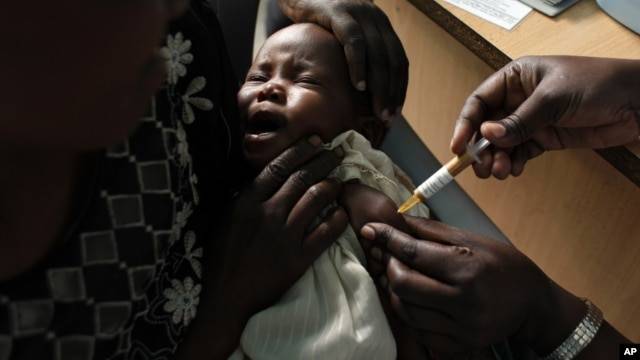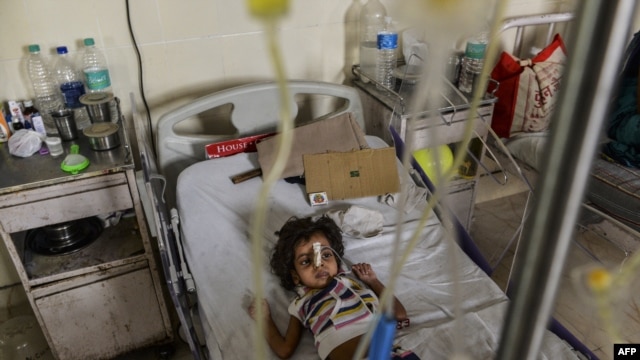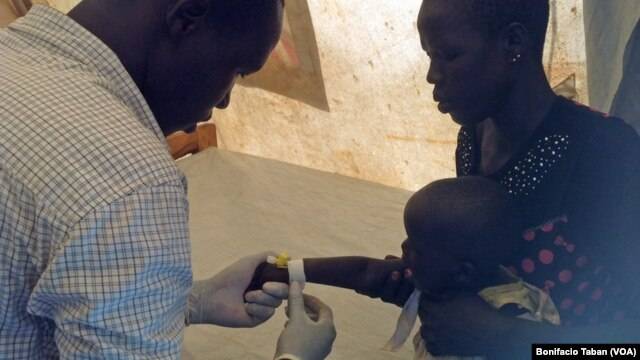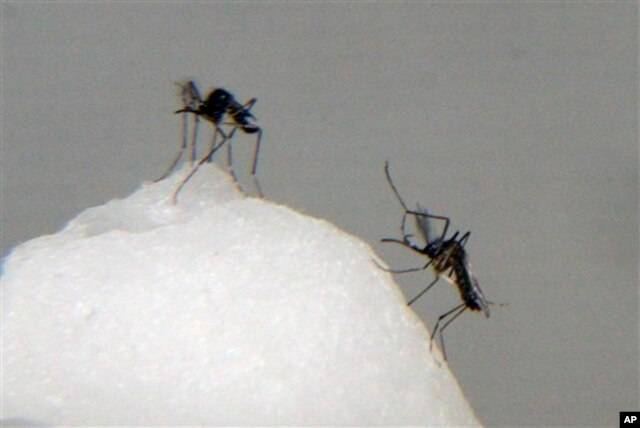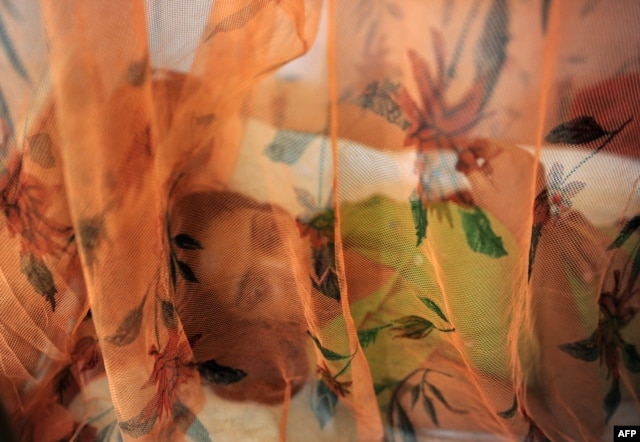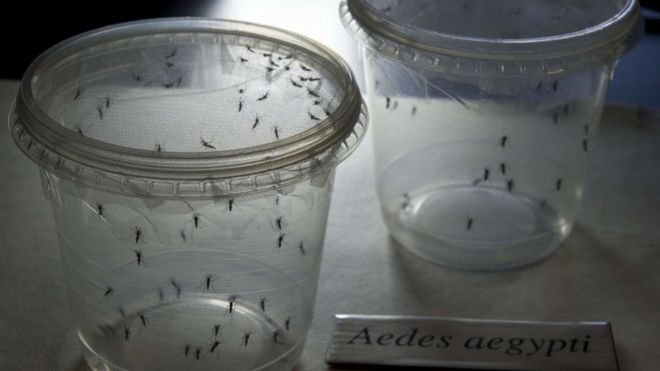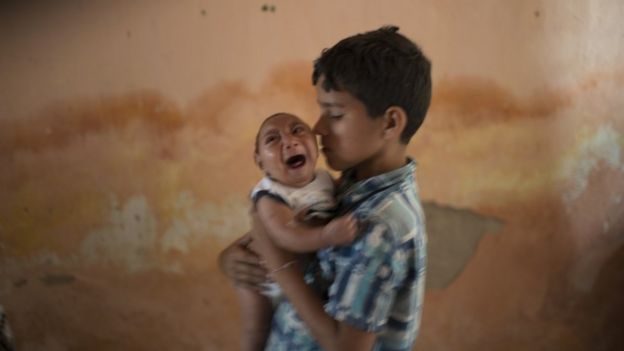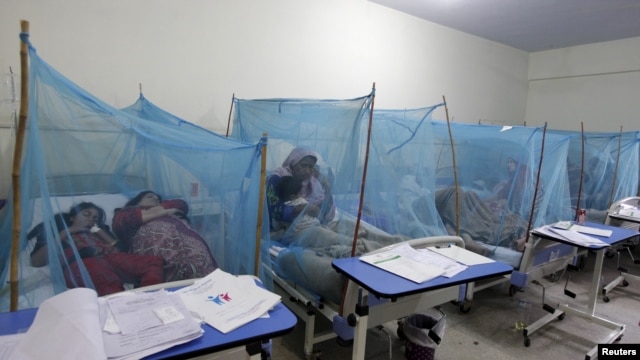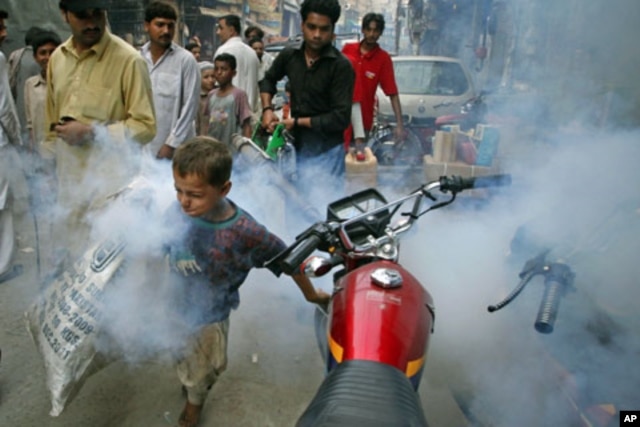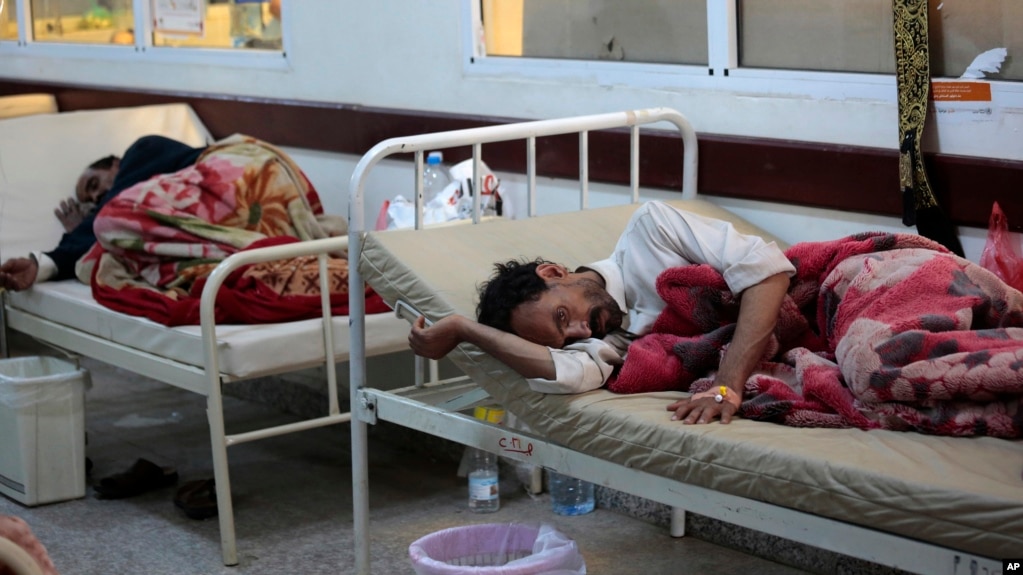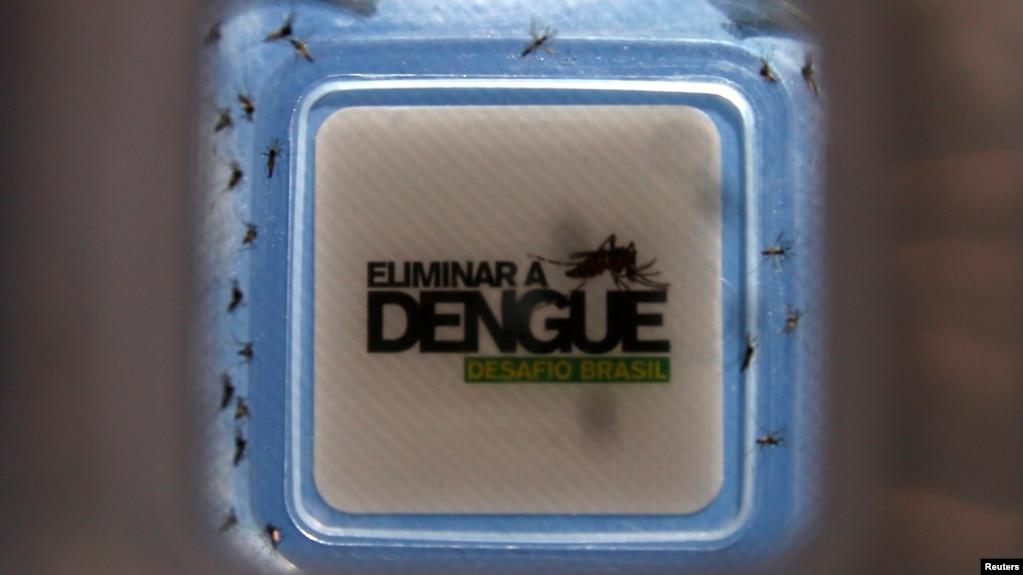Not only this, but the people are on the verge of starvation.
Aug 12, 2015 2:55pm EDT
Related: WORLD, YEMEN
Dengue rife, malaria spreading in filthy streets of Yemen: charity
BY MONICA MACSWAN

Children queue for water at a school in Sanaa, Yemen, sheltering them and their families after the conflict forced them to flee their areas from the Houthi-controlled northern province of Saada August 4, 2015.
REUTERS/KHALED ABDULLAH
LONDON (Thomson Reuters Foundation) - Rubbish piling up on the streets of Yemeni towns is helping the spread of dengue fever and malaria, a charity employing local people to clear up the filth said on Wednesday, as fighting, baking heat and a lack of food and water add to their hardships.
Rubbish lying in the streets has contaminated soil and water and attracted infectious pests, Mercy Corps said. Mosquitoes carrying dengue fever and malaria breed and lay eggs in puddles.
At least 8,000 people in the port city of Aden have contracted dengue fever since the present crisis began five months ago, cases of typhoid have been recorded and there are reports of malaria.
Continue reading at:
Dengue rife malaria spreading in filthy streets of Yemen charity Reuters
Aug 12, 2015 2:55pm EDT
Related: WORLD, YEMEN
Dengue rife, malaria spreading in filthy streets of Yemen: charity
BY MONICA MACSWAN
Children queue for water at a school in Sanaa, Yemen, sheltering them and their families after the conflict forced them to flee their areas from the Houthi-controlled northern province of Saada August 4, 2015.
REUTERS/KHALED ABDULLAH
LONDON (Thomson Reuters Foundation) - Rubbish piling up on the streets of Yemeni towns is helping the spread of dengue fever and malaria, a charity employing local people to clear up the filth said on Wednesday, as fighting, baking heat and a lack of food and water add to their hardships.
Rubbish lying in the streets has contaminated soil and water and attracted infectious pests, Mercy Corps said. Mosquitoes carrying dengue fever and malaria breed and lay eggs in puddles.
At least 8,000 people in the port city of Aden have contracted dengue fever since the present crisis began five months ago, cases of typhoid have been recorded and there are reports of malaria.
Continue reading at:
Dengue rife malaria spreading in filthy streets of Yemen charity Reuters


